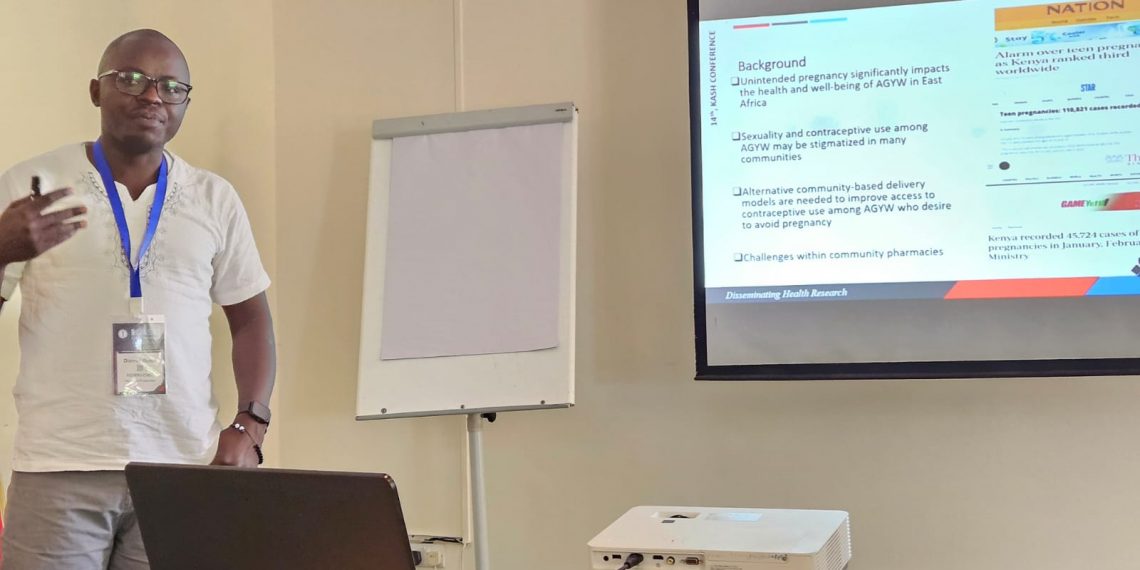A KEMRI study has recommended implementation of a novel adolescent-centered contraceptive decision support tool designed specifically for the community retail pharmacy setting.
The study argues that the existing community pharmacy dispensing model should be (re)designed so that pharmacies can offer contraceptive counselling before dispensing inorder to fully capitalize on the strength of community pharmacy contraceptive delivery outlets.
Additionally, the study reveals that the community pharmacy staffs in the study group expressed openness to a tablet-based mobile app focused on decision support as a feasible and acceptable approach to improving the quality of care for among adolescents’ girls and young women (AGYW).
According to the study titled ‘Perceived Barriers and Facilitators to Quality Contraceptive Decision Support for Adolescent Girls and Young Women (AGYW) Among Pharmacy Staff: A Qualitative Study In Western Kenya,’ pharmacy staff in the study cohort relayed concerns about overuse of emergency contraception among adolescents’ girls and young women (AGYW), and expressed a desire to better support AGYW contraceptive decision-making by putting in place community pharmacy family planning counselling services to go along with dispensing.
The formative study used structured in-depth interviews with pharmacy staff at 20 retail pharmacies in Kisumu, Kenya to assess pharmacy-based contraceptive service delivery to AGYW. Community pharmacies selected in the study were those that provided at least four Family Planning methods ─ emergency pills, daily oral pills, and injectable contraceptives, owned supportive study procedures, and a private consultation area (at least half of the pharmacies).
However, the study finds out that most of adolescents’ girls and young women (AGYWs) cited various barriers to have contraceptive counseling in pharmacies which included lack of time for both the service provider and the client, privacy concerns, inadequate training, shortage of personnel to attend to other paying clients, language barriers, and stigma.
Additionally, many AGYW are perceived to be in a hurry and decline counseling.
“Potential facilitators should be put in place to help in delivering quality contraceptive decision support such as, the provision of information, educational and communication materials (IEC materials), guidelines, employment of additional community pharmacists’ personnel, developing Family Planning specific training, private rooms, and subsidizing services,” the study revealed.
The study was presented at the 14th KASH, by Dismas O Congo (KEMRI CMR_RCTP), Maricianah Onono, Elizabeth Bukusi both from KEMRI and ELIZABETH Harrington (University of Washington) found out that there is a need for implementing new strategies to engage and support adolescent girls and young women (AGYW) in utilizing family planning (FP) services in community-based contexts, such as pharmacies, where they may prefer to receive care are needed.
According to the study community pharmacies are valuable contraceptive sources for many adolescents’ girls and young women (AGYW) with majority of pharmacy staff aware and emphasizing the importance of contraceptive counseling before dispensing Family Planning methods in the pharmacy.
The study points out that community pharmacists are required to have the competency to dispense contraceptives and provide method specific counseling on all available contraceptive methods. This entails explaining how all methods work and the possible side effects, while informing the potential users of the different methods available to them based on their desire to either prevent or delay a pregnancy.
“Purposive sampling was used to select community pharmacies and pharmacy staff that participated in the study.”















